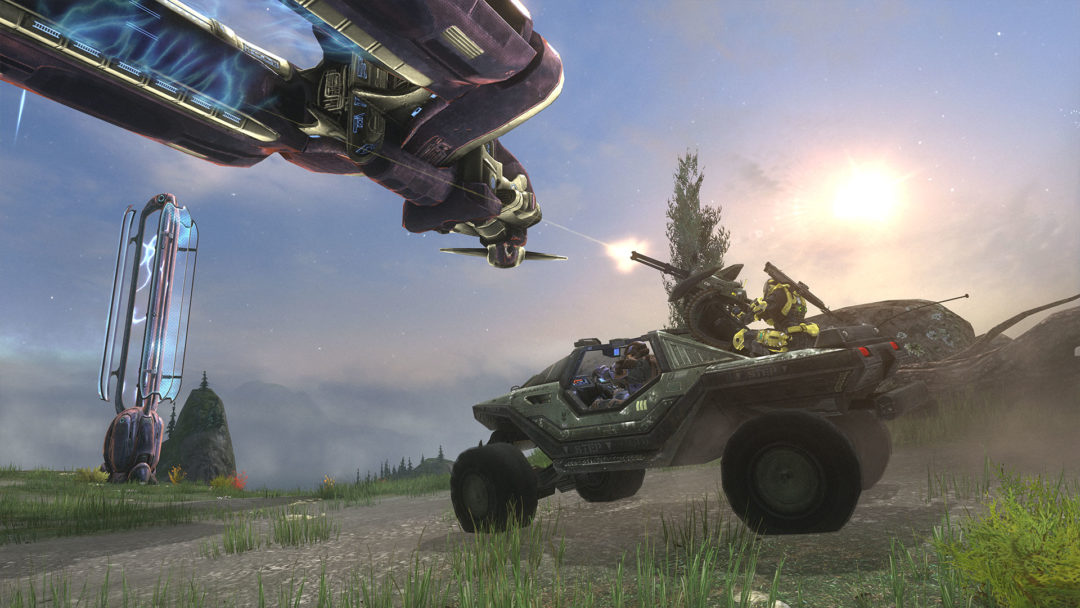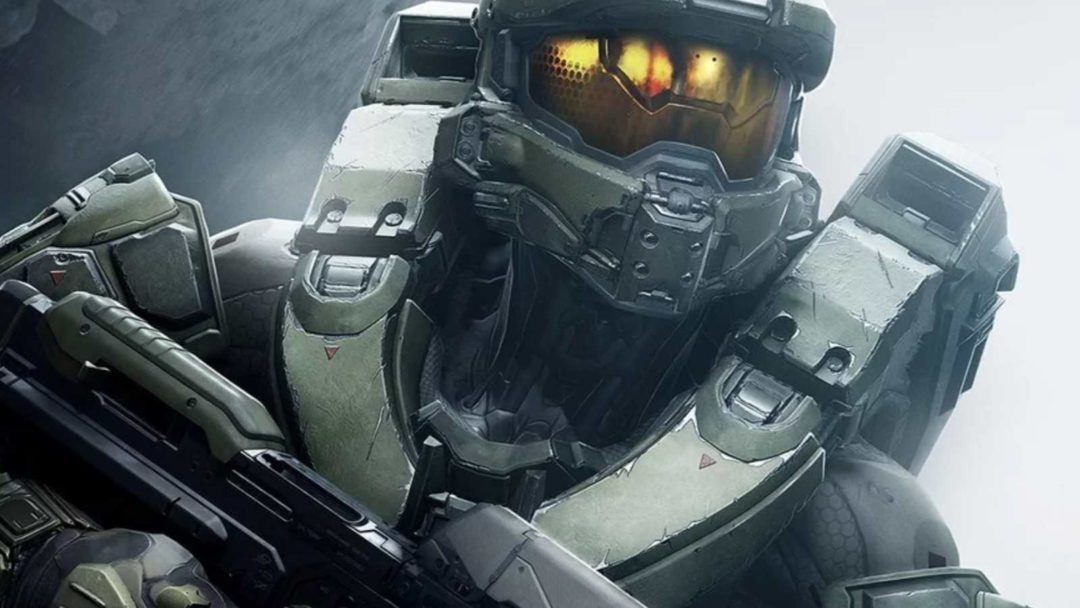Every gamer has a special video game experience that conjures up memories of better days gone by. Many old-school game enthusiasts find their virtual comfort food in the 8-bit era or in a grimy arcade. For some a bit younger, Nintendo-style couch party games and Pokémon dominate their memories. As for me, the answer is a little more complicated, but it totally involves Halo.
My spiritual zen once existed within the Halo mythos. When booting up Xbox’s premier science fiction first-person shooter back in the mid-2000s, I immediately relax into a sense of inner peace. Playing Halo resurrects a cocktail of joyful memories mixing nostalgia, fun, innocence, and laughter with friends. During my high school and early college years, Bungie’s crown jewel acted as a sanctuary protecting me from my various personal teenage tumults and woes. Driving a Mongoose across Valhalla’s treacherous terrain and slicing Elites with energy swords acted as virtual meditation for my emotionally compromised psyche. While life was far from perfect, Halo was enough to wall off the looming world-ending apocalypse that existed inside my overactive noggin.
I reminisce over these happier days. As an adult, I’m tormented by a volatile combo of gender dysphoria, OCD, severe depression, and psychotic dissociative episodes. In just a decade, I’ve visited more psychiatrists, therapists, and doctors than I can count, and as a result of multiple inpatient and outpatient hospitalizations, I had abandoned the numerous joys in my life. I lost my appetite for video games, film, heavy metal, and comics and preferred to sleep away the pain. In other words: I had left Halo, my therapeutic emotional anchor, behind.
The resulting psychological fallout proved disastrous. Due to a perpetually nihilistic outlook, the last few months were hell on Earth for me. The numerous pressures plaguing me became increasingly volatile, ratcheting up to a boiling point of super volcanic proportions. I was endangered by the tormented brain inside my skull. In an act of self-preservation, my editors and I decided that I needed a brief reprieve from work in order to resuscitate my will to live.
For old time’s sake, I let Halo be my self-prescribed therapy. Before embarking on a two-week occupational hiatus, I rediscovered my fondness for the Halo franchise when diving into a split-screen campaign of Halo: Combat Evolved along with my nephew. Rocketing through the solo story was the first time he had ever experienced the original Xbox classic. Just as importantly, replaying Master Chief’s debut adventure reintroduced me to my favorite video game IP, reminding me why Microsoft’s Nintendo-style couch party game with an FPS aesthetic is meant to be played with friends.
This euphoric moment of familial video game bonding meant everything to me. Once I was on sick leave, our lengthy Halo marathons inspired me to focus on regaining my own sense of joy. The whole purpose of my vacation was to recharge my system. In order to make myself mentally fit, I needed to utilize the Halo games and reboot my damaged brain like Master Chief in cryo sleep.
I played almost every Halo game during my self-imposed medical retreat. While bed-ridden, I blasted through all the campaigns on Halo: The Master Chief Collection. These spacefaring shooter escapades included Halo 2’s Arbiter-focused storyline, Halo 3’s bombastic conclusion to the original trilogy, Halo 3: ODST’s criminally underappreciated sci-fi noir plot featuring Firefly alumni like Nathan Fillion, and Halo 4’s excellent characterization of Master Chief’s peculiar relationship with his AI Cortana. Even beyond Halo: The Master Chief Collection, I replayed Halo 5: Guardians for the first time since 2015, and despite some story problems and an unforgivable lack of split screen, the open gameplay environments and galaxy-expanding world-building remain excellent.

However, single player wasn’t enough to satiate me. During my high school years, I hosted and attended numerous Halo LAN parties. My buddies and I regularly pulled off all-nighters blasting through a nerve-racking smorgasbord of classic Halo multiplayer game types like deathmatch, team deathmatch, Capture the Flag, king of the hill, and Juggernaut while indulging in far too much pizza and the latest Mountain Dew monstrosity. Nights like those were my rendition of the elusive “good ol’ days,” fond memories I wistfully recall while the setting sun shines an orange glimmer upon my smiling and tear-stained face.
I desperately desired to have that feeling back, and I had a great idea. My lovingly adventurous nephew eventually returned for a weekend, and with our reunification, we played Halo: The Master Chief Collection’s chaotic online split screen multiplayer almost nonstop. Starting with the tried-and-true Halo staple team deathmatch, we eventually grenade jumped into the zombie-style Infection mode, the Red vs. Blue-inspired Grifball, and Capture the Flag with giant vehicles called elephants used as team bases. Amid explosions, triumphant screams, and giggle fits, my nephew and I had a running riot whilst discovering a new way to enjoy video games together.
This five-day multiplayer bliss trip was exactly what the doctor ordered. By the end of that extensive Halo session, my brain felt like it had recharged to full health. While I’m sure I will be compelled to plop a Halo disc inside the Xbox One again in the future — Halo: Reach will soon join Halo: The Master Chief Collection after all — my sanity feels comparatively intact. Spending time with my nephew via my favorite virtual pastime was enough to eliminate my depressed and dour nature. For the time being, I’m a killjoy no longer: I’m ready to smile and finish this fight.
I’m ready to start living for the present and future. Games, movies, TV, music, and comics are a coping mechanism for mental illness and life’s array of troubles. Sometimes the best way to move forward is to re-experience the ’80s arcade, friendly Pokémon battles, or a sublime Halo multiplayer experience with those we love most. Remembering life’s happier moments is great motivation when trying to overcome our worst days. Revisiting the good times is proof that the agony never lasts forever. Once that missing sense of joy returns like a long lost friend, we can do anything we set our minds to.
Let’s get back to work.





Published: Aug 7, 2019 01:00 pm